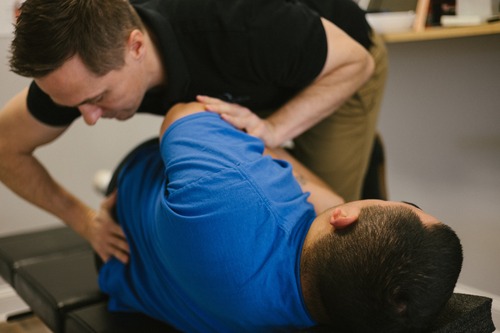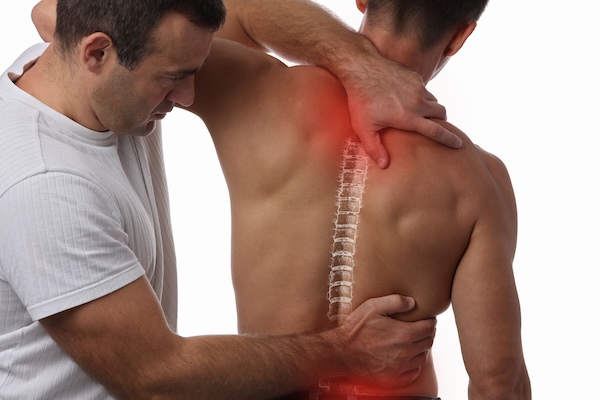At Inspine Chiropractic and Wellness, we are committed to helping our community achieve optimal health and well-being through premier chiropractic care. Our team specializes in treating a variety of conditions, including arm and shoulder pain, muscle tension, nerve compression, and overall spinal health concerns. We offer personalized chiropractic therapy, spinal adjustments, and holistic treatment plans designed to relieve pain, restore balance, and enhance mobility. Whether you’re seeking relief from chronic pain or looking to improve your overall wellness, our goal is to empower you with effective, long-lasting solutions.
Have you ever sneezed and suddenly felt a sharp or radiating pain in your arms? While it might seem strange, experiencing arm pain when sneezing is not uncommon and can be linked to various underlying issues, from muscle strain and nerve compression to spinal problems and even cardiovascular concerns. This sudden discomfort can be alarming, especially if it persists or worsens over time.
In this blog, we’ll explore the causes of arm pain when sneezing and discuss treatment options, including working with an experienced Dalton chiropractor for effective pain management.
Causes of Arm Pain When Sneezing
Understanding why your arms hurt when you sneeze involves examining several potential causes. Each of these causes relates to how your body reacts during a sneeze, which can strain muscles or irritate nerves.
Nerve Compression and the Cervical Spine
One common cause of arm pain during sneezing is nerve compression in the cervical spine. The cervical spine consists of vertebrae in your neck that protect the spinal cord and nerves. If these nerves become compressed due to herniated discs or poor posture, they can cause pain that radiates down your arms. This pain may feel sharp or tingling, especially during sudden actions like sneezing.
Muscle Strain and Upper Body Tensions
Another reason for arm pain when sneezing is muscle strain. Sneezing involves a sudden contraction of muscles in your abdomen and chest. If your upper body muscles are tight or strained, this contraction can lead to discomfort or pain in your arms. Activities that increase tension in your upper body, such as lifting heavy objects or poor ergonomic habits, can contribute to muscle strain.
Referred Pain from Other Areas
Sometimes, arm pain when sneezing may not originate in the arms at all. This is known as referred pain. Conditions affecting the heart, lungs, or other areas can manifest as pain in the arms. For instance, issues like intercostal muscle strain or even cardiovascular problems can cause discomfort that feels like it’s coming from your arms. It is essential to consider these possibilities, especially if you experience other symptoms, such as chest pain or shortness of breath.
Underlying Medical Conditions
Understanding the underlying medical conditions that can cause arm pain when sneezing is crucial. Several factors can contribute to this discomfort, often related to the spine, nerves, and overall posture.
Herniated Discs and Nerve Irritation
Herniated discs can occur in the cervical spine. When a disc bulges or ruptures, it can compress nearby nerves. This nerve compression can lead to pain that radiates down the arms. If you experience arm pain when sneezing, it may be due to nerve irritation caused by a herniated disc.
The Impact of Poor Posture
Poor posture can lead to muscle strain and tension in the upper body. Slouching or leaning forward can increase pressure on the spine and surrounding muscles. Over time, this strain can result in pain that becomes noticeable during activities like sneezing. Maintaining good posture can help reduce this risk.
Spinal Issues and Vertebral Compression Fractures
Spinal issues, such as vertebral compression fractures, can also contribute to arm pain. These fractures may occur due to osteoporosis or trauma. When the vertebrae are compromised, they can affect nerve pathways and lead to pain in the arms. If you suspect a spinal issue, seeking medical evaluation is essential.
Symptoms to Watch For
When experiencing arm pain while sneezing, it’s important to recognize the symptoms that may indicate a more serious issue. Understanding these symptoms can help you seek the right treatment promptly.
Localized and Radiating Pain in the Arms
You may feel pain in a specific area of your arm when you sneeze. This localized pain can also radiate down to your fingers or up to your shoulder. Radiating pain often suggests that a nerve may be compressed or irritated, possibly due to issues in the cervical spine or surrounding muscles.
Tingling or Numbness in the Upper Arm
Tingling or numbness can accompany the pain. You may notice a “pins and needles” sensation in your upper arm or hand. This symptom can indicate nerve compression, such as in cases of carpal tunnel syndrome or thoracic outlet syndrome. These conditions can affect how your nerves function, leading to discomfort when sneezing.
Signs of Severe Pain or Persistent Pain
If you experience severe pain that does not improve with rest or over-the-counter medications, seek medical attention. Persistent pain that lasts for days or weeks may signal an underlying issue, such as a herniated disc or other spinal problems. Ignoring these signs can lead to further complications, so it’s essential to address them early.
Treatment Options
When experiencing arm pain when sneezing, it is essential to explore effective treatment options. Addressing the underlying causes can help relieve discomfort and improve overall function. Here are some common treatment methods:
Conventional Treatments: Medications and Physical Therapy
Over-the-counter medications can provide quick relief from pain and inflammation. Nonsteroidal anti-inflammatory drugs (NSAIDs), such as ibuprofen or naproxen, can help reduce swelling and alleviate discomfort.
Physical therapy is another valuable approach. A physical therapist can create a personalized treatment plan that includes:
- Strengthening exercises: These exercises target the arm muscles and upper body, helping to build strength and stability.
- Stretching routines: Stretching can improve flexibility and reduce tension in the muscles, which may help prevent future pain.
- Manual therapy: This hands-on approach can help relieve tightness and improve mobility in the affected areas.
Chiropractic Care for Spinal Adjustments
Chiropractic care focuses on the spine and its alignment. A chiropractor can perform spinal adjustments to relieve nerve compression and improve overall function. This can be particularly effective for pain caused by issues in the cervical spine or other spinal problems. Regular chiropractic sessions can help maintain proper alignment and reduce the risk of recurring pain.
Home Remedies: Heat Therapy and Rest
In addition to professional treatments, home remedies can play a vital role in managing arm pain. Applying heat to the affected area can help relax tight muscles and improve blood flow. Consider using a heating pad or warm towel for 15-20 minutes at a time.
Rest is also crucial. Avoid activities that trigger pain, and give your body time to heal. Gentle movements and stretches can help maintain flexibility without overexerting the muscles.
Preventive Measures
Preventing arm pain when sneezing involves a proactive approach to your health. Implementing simple lifestyle changes can significantly reduce discomfort and improve overall well-being.
Maintaining Proper Posture
Good posture plays a crucial role in preventing arm pain. Poor posture can increase tension in the upper body and compress nerves. To maintain proper posture:
- Sit and stand with your shoulders back and spine aligned.
- Use ergonomic furniture that supports your back and neck.
- Take breaks to stretch and adjust your position if you sit for long periods.
Strengthening Exercises for Core and Upper Body
Strengthening your core and upper body can help support your spine and reduce tension. Focus on exercises that target key muscle groups:
- Engage in regular strength training, including push-ups and planks.
- Incorporate stretching routines to improve flexibility and reduce tightness.
- Consider working with a physical therapist to design a personalized exercise program.
Seeking Medical Advice for Persistent or Severe Pain
If you experience ongoing arm pain when sneezing, it is essential to consult a healthcare professional. Early intervention can help identify underlying issues before they worsen. Regular check-ups can also provide guidance on maintaining a healthy lifestyle and managing any potential risk factors.
When to Seek Medical Attention
Experiencing arm pain when sneezing can be concerning. While it may stem from minor issues, certain situations require immediate medical attention. Here are key indicators that you should consult a healthcare professional.
Persistent or Severe Arm Pain
If your arm pain is persistent or severe, do not ignore it. Ongoing pain may indicate an underlying issue that needs evaluation. Conditions such as nerve compression or muscle strain can worsen without treatment. Seeking medical advice can help identify the root cause and prevent further complications.
Additional Symptoms such as Chest Pain or Shortness of Breath
If you experience additional symptoms like chest pain or shortness of breath along with arm pain, seek immediate medical attention. These symptoms may signal serious conditions, such as cardiovascular disease or nerve compression syndrome. Timely intervention is crucial for your safety and health.
Developing an Appropriate Treatment Plan
If you have persistent arm pain or other concerning symptoms, a healthcare professional can help develop an appropriate treatment plan. They will assess your medical history, conduct necessary tests, and recommend effective treatment options. Early diagnosis and intervention can significantly improve your recovery and quality of life.
Seek Treatment For Your Arm Pain With Inspine Chiropractic and Wellness!
If you’re experiencing persistent or worsening arm pain when sneezing, it’s important to address the root cause before it impacts your daily life. At Inspine Chiropractic and Wellness, our experienced team is dedicated to helping you find lasting relief through personalized chiropractic care and holistic treatment plans.
Contact us at (706) 459-9456 to schedule an appointment today!





